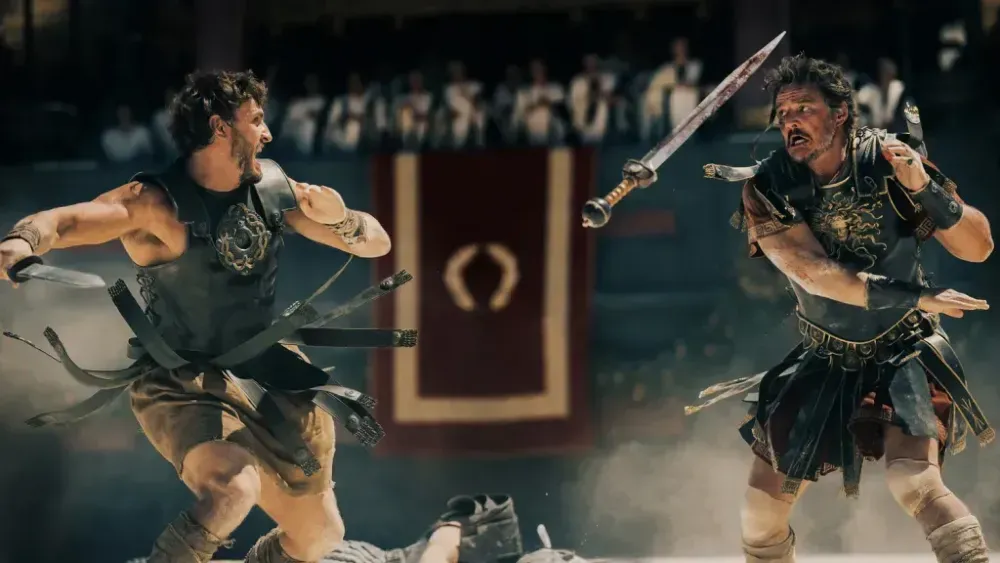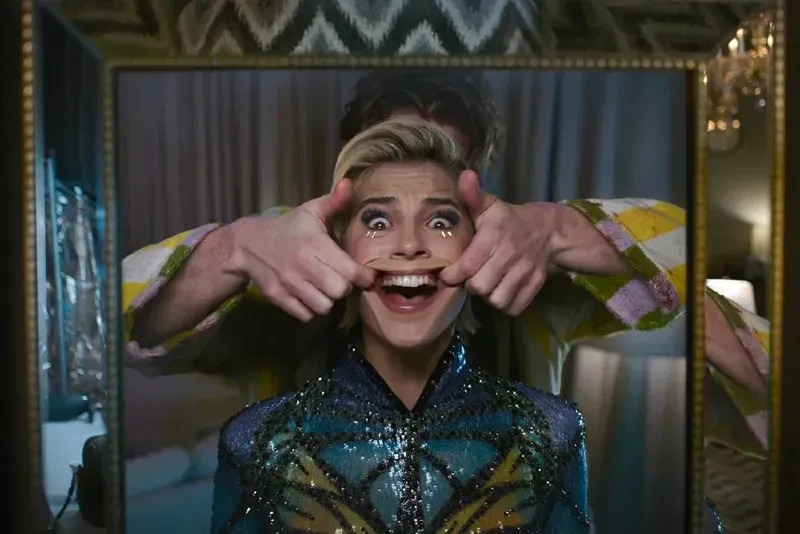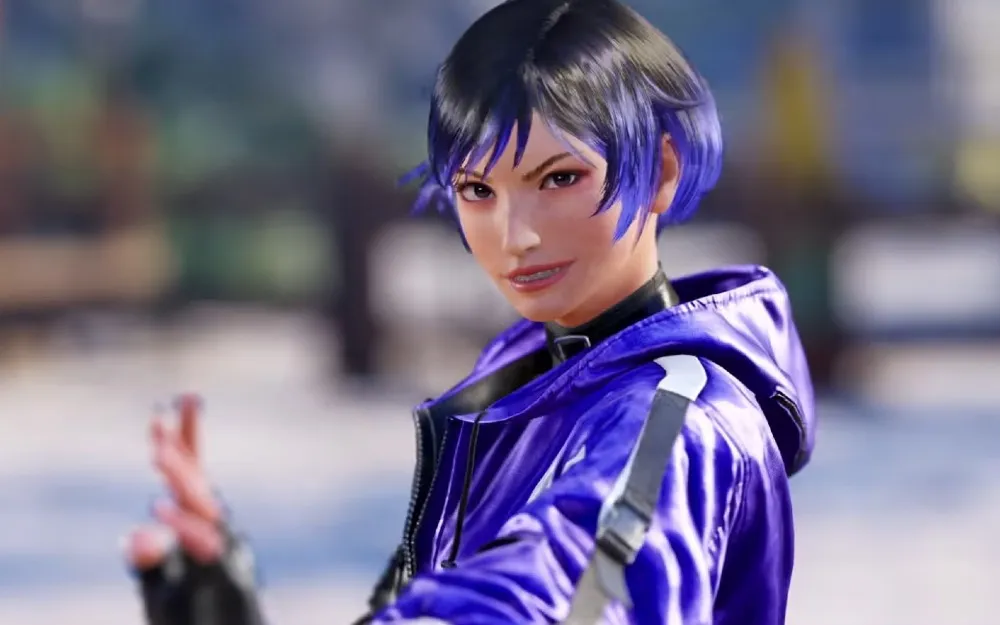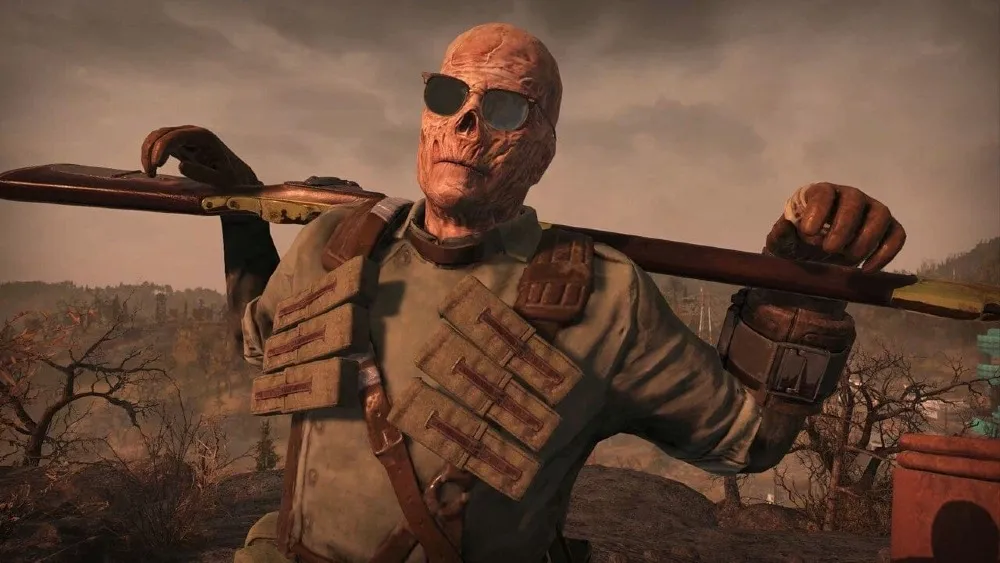Table of Contents
Two-and-a-half years after its predecessor hit the screen towards the end of the Covid pandemic, the closing chapter in Denis Villeneuve's ambitious adaptation of Frank Herbert’s beloved novel is here, and it was certainly worth the wait. Spectacular visual and sound effects, epic world building and a new take on the material make for a spectacular in-cinema experience, let down somewhat by mixed performances from its large cast and some thematic flaws.
Although a third movie is in the works, based on Herbert’s sequel Dune Messiah, Part Two represents a complete, satisfying ending, while laying the groundwork for further instalments, which in their written form are very different in style and tone.
The movie resumes where Part One left off. Paul Atreides (Timothee Chalamet) and his pregnant mother Jessica (Rebecca Ferguson) are on the run from the Harkonnen forces that wiped out most of House Atreides, and are hiding out with the native Fremen population deep in the desert.
As war brews between the Harkonnens and the guerrilla Fremen, Paul and Jessica learn the ways of desert survival and war, and Paul is torn between embracing his prophesied destiny as a galactic messiah, and running from its terrifying consequences. He begins a romance with Fremen warrior Chani (Zendaya) that places her at odds with Jessica and Fremen leader Stilgar (Javier Bardem).
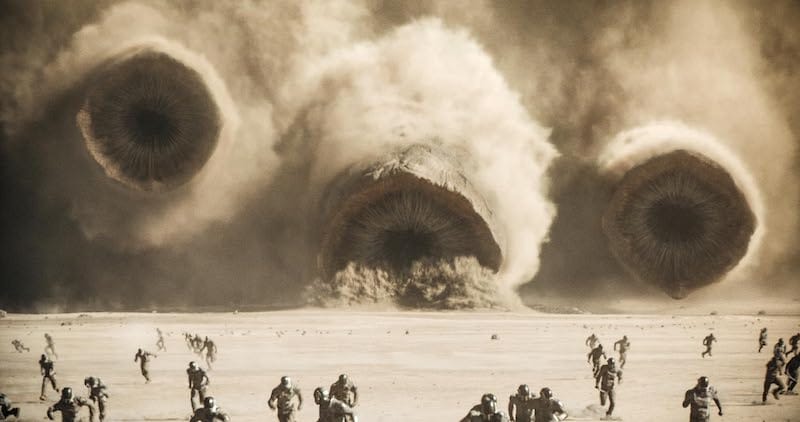
Meanwhile, with the unforeseen strength of the Fremen opposition sabotaging best-laid plans, and the critically valuable Arrakis spice up for grabs, other interested parties soon involve themselves more directly, including the Emperor (Christopher Walken) and his daughter (Florence Pugh), and the powerful Bene Gesserit order, led by the Reverend Mother Mohiam (Charlotte Rampling).
Sidelined for long stretches of the film, Paul Atreides is still the main character, and while Chalamet was uneven in Part One, his performance is more assured this time around. The problem is that his role in Part Two is quite dull, as his powers make him increasingly less relatable to the audience, and he spends much of the movie mulling options and not making decisions, while the plot moves ahead without him. When he is finally moved to act, some of his “for the greater good” decisions are almost completely out of the blue, and therefore feel unearned and don’t land well.
The character of Chani meanwhile, is the weakest part of the film. While she is a proven talent based on her other work, Zendaya is weak here, and is let down by some clumsy dialog and having to represent the argument against religious faith, which is given short shrift compared to its opposite position. The prophecies are both true and sold on lies, a core part of the books, but the Chani arc is muddled, contradictory and weak. She comes across like the whiny, wise-beyond-her-years, Hollywood idea of an American high school student, dropped into another time and place, and the contradiction is jarring.
The filmmakers seem to have a problem with understanding the concept of faith in general, and there is an odd moment or two where Stilgar’s commitment is treated as a joke, and it clashes badly with the tone of the rest of the movie. With the struggle between faith and scepticism a core part of the film, this is a significant misstep.
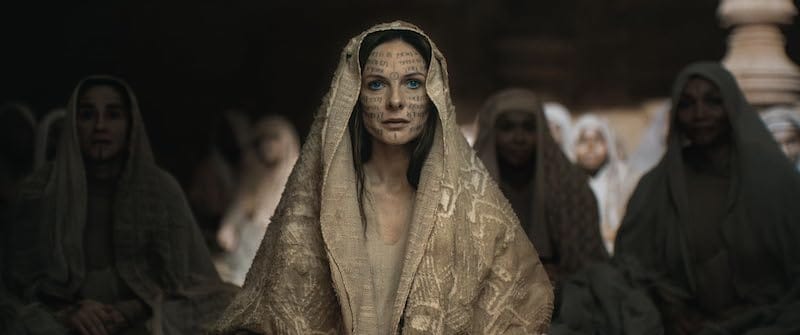
It’s hard to represent epic politicking in movies (see the Star Wars prequels, which were reportedly inspired by the Dune novels), but Villeneuve nails it with small moments that say little but imply a lot. The Bene Gesserit only have a few minutes of screen time but their influence is portrayed effectively, and we get a strong sense of the balance of power between the major factions, whether seen or not. Lea Seydoux as galactic influencer Margot Fenring is fantastic, even though the role is largely redundant.
While Paul ums and ahhs his way through the movie, rogue Bene Gesserit Lady Jessica is a force of nature, her singular focus driving much of the behind-the-scenes action to restore Atreides power and influence. Rebecca Ferguson is the highlight of the movie and unleashes a masterful performance, ably supported by incredible costuming and cultural detail.
The sound design is spectacular, and while reminiscent of Villeneuve's Blade Runner 2049, takes it to a new level, expertly managing tension and complementing the beautiful environments. Even something as simple as the thumper is a pleasure to experience in action, and the broadside from a Harkonnen battleship made the whole cinema shake.
The same is true of the visual design and effects. If you thought the work on Avatar 2’s amazing ships, aircraft and submarines was incredible, Villeneuve tops it here. Everything looks grounded and functional and is beautiful to watch. It makes you wonder what could have been had Villeneuve directed the Star Wars sequels.
The various planets are presented very differently from one another in terms of style and lighting, with each choice reflecting the environment, conditions and culture of its inhabitants in such an effective manner it seems to mess with your senses. If nothing else, there are important lessons here for the makers of any alternate-world films in the future, and also for more grounded projects seeking to make the portrayed environment completely immersive.
The constant dispatching of Harkonnen servants by their masters is borderline humorous, but it’s refreshing to have a genuinely evil opponent in a time where every villain has to have a tragic backstory and shades of grey. The baron is a powerful, menacing presence throughout, and Austin Butler, as new character Feyd-Rautha, mimics Stellen Skarsgard’s accent to great effect while delivering a different breed of viciousness.
While the books are too dense for a movie to cover all the themes effectively, the chosen focuses are explored relatively effectively and were certainly not the safest choices for the screenwriters to take. Dune: Part Two is a beautiful, spectacular, flawed movie that is truly unique. Worth seeing on the biggest screen you can find.
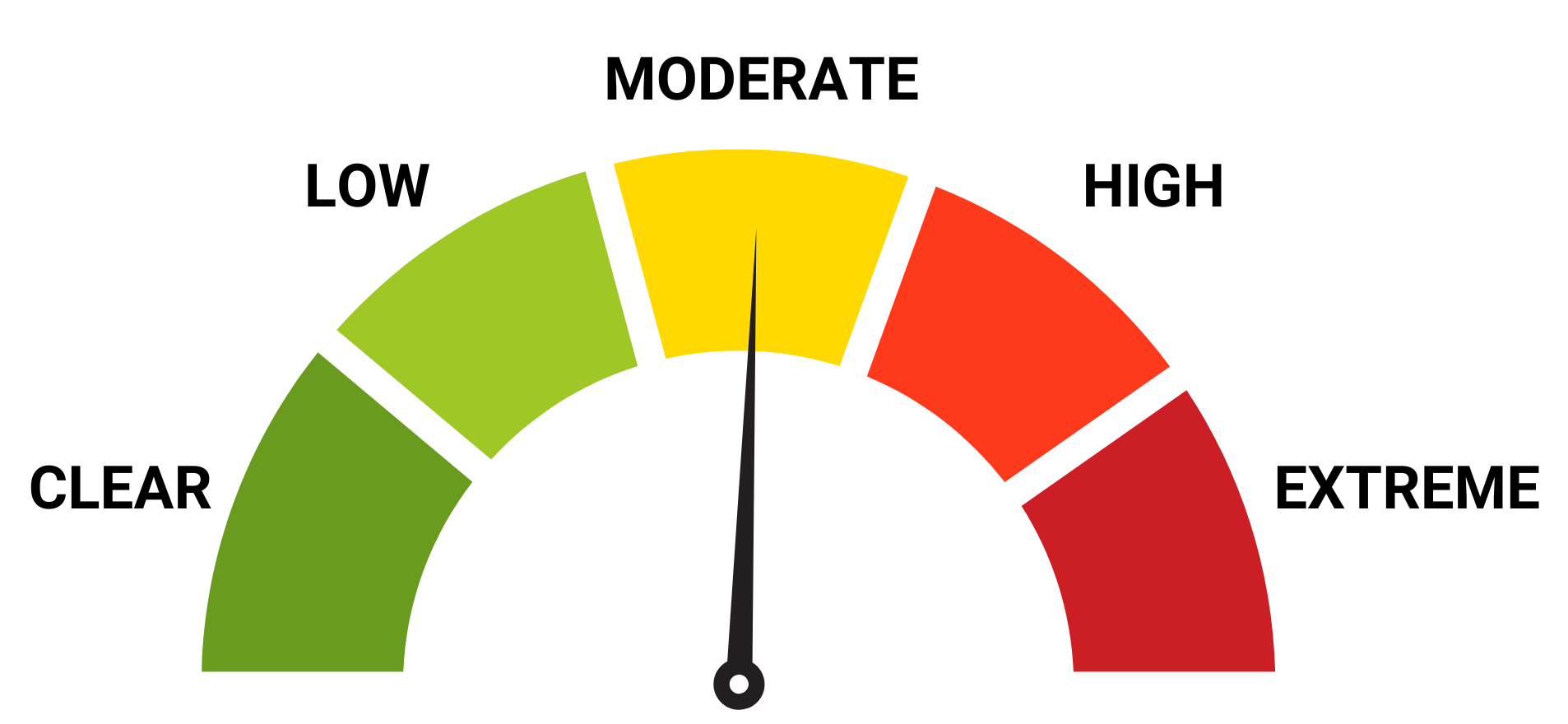
WOKE-O-METER!
Typical of the times, a number of self-contradictory virtue signals are transmitted without much thought. Visuals constantly reinforce an anti-colonial message even though race isn’t otherwise explored here, and the multicultural “noble savages” are pretty quick to jump onboard the jihad train, undercutting that point.
The word “jihad” itself, so iconic to the book, has been completely excised, no doubt to placate the usual suspects. On the feminist front, it’s all go go girl power except the all-woman organisation that runs the galaxy from the shadows is both ruthless and incompetent (not to mention a bit rapey). All aggressor soldiers are, of course, white. - GamerGate staff



